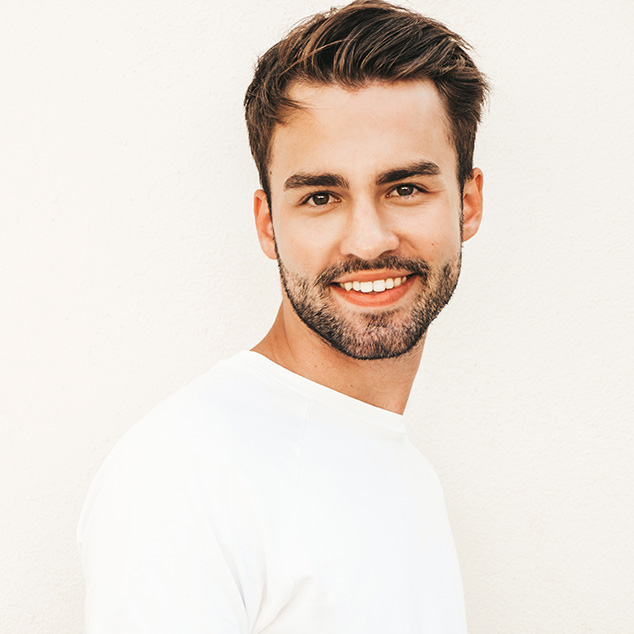
How Can a Healthcare Provider Help Me With My Facial Veins?
A healthcare provider can assist you with facial veins through a comprehensive evaluation and personalized treatment plan. They begin by assessing your specific condition, determining the underlying causes of visible facial veins, which may include factors like sun exposure, genetics, aging, or certain medical conditions. Based on this assessment, they can recommend appropriate treatment options, such as IPL photo rejuvenation, which can effectively reduce the appearance of these veins.
Additionally, they can provide guidance on preventive measures, such as proper sun protection and skincare routines that can help minimize future visibility. If necessary, your provider may also refer you to a specialist, such as a dermatologist or a vascular surgeon, for more advanced interventions. Regular follow-up appointments will allow for monitoring your progress and adjusting treatments as needed, ensuring you achieve the best possible results for your skin health and appearance.
Connect NowHow It
Works
Request an Appointment
Visit www.medcareconnect.ca to start the simple and easy process of being put in touch with a healthcare facility and provider.
Connect with a Healthcare Facility & Provider
The MedCare Connect team will put you in touch with a healthcare facility and provider and notify you of your upcoming appointment.
Receive Medical Advice, a Diagnosis and Treatment
The healthcare provider can provide you with a diagnosis, prescription, doctor’s note, specialist referral or order lab work when deemed necessary.
Pricing
Ontario Residents
Free, 100% OHIP covered with a valid Ontario health card.
$50 CAD consultation fee without a valid Ontario health card.
Private Insurance
Direct billing available with our affiliated insurance partners.
All major insurance plans accepted for international students and uninsured individuals.
Coverage and eligibility vary by insurer. Please check your policy for coverage eligibility. For non-affiliated insurance partners, patients are required to pay a $50 CAD consultation fee. A receipt will be issued for you to reimburse to your insurance company for assessment of reimbursement.
Uninsured Services
Certain services are not covered by provincial or private insurance and may incur extra fees at the end of your appointment.
Please note that certain forms and documents may require an in-person assessment at a local healthcare facility and will be filled in at the healthcare provider’s discretion, when medically appropriate.
Frequently Asked Questions
In Ontario, OHIP (Ontario Health Insurance Plan) typically covers consultations with physicians, including family doctors and specialists, for medically necessary services. This coverage extends to consultations related to various health concerns, including acne treatment, if deemed necessary by the physician.
For patients with an invalid/expired health card or for patients who do not have a health card, there would be a consultation fee.
Yes, we accept all major insurance plans for international students and uninsured individuals. Direct billing is available with our affiliated insurance partners. Coverage and eligibility vary by insurer. Please check your policy for coverage eligibility. For non-affiliated insurance partners, patients are required to pay a consultation fee. A receipt will be issued for you to reimburse to your insurance company for assessment of reimbursement.
Facial veins, commonly known as spider veins or telangiectasia, are small, dilated blood vessels that appear close to the skin's surface. They often resemble fine lines or webs and are typically found on the cheeks, nose, and around the eyes. While they are generally harmless, they can be a cosmetic concern for many individuals.
Various factors contribute to the development of facial veins. Genetics play a significant role, as some individuals may have a hereditary predisposition. Sun exposure can damage skin and blood vessels, leading to dilation. Aging also decreases skin elasticity, making veins more visible. Hormonal changes, particularly during pregnancy or menopause, can affect blood flow and vessel appearance. Additionally, certain medical conditions, such as rosacea, can exacerbate the visibility of facial veins.
Facial veins are typically not harmful and do not pose any health risks. They are primarily a cosmetic issue and can affect self-esteem and confidence. However, it’s essential to monitor any sudden changes in appearance, as they could indicate underlying health issues that may require medical attention.
While not all facial veins can be prevented, some proactive measures can minimize their development. Using broad-spectrum sunscreen with high SPF can protect the skin from UV damage, which can lead to vascular issues. Limiting sun exposure, especially during peak hours, and wearing protective clothing can also help. Maintaining a healthy skincare routine, including moisturizing and gentle cleansing, supports overall skin health and may prevent irritation that could lead to vascular dilation.
Treatment options vary based on the severity and extent of the facial veins. Laser therapy is a popular option that uses focused light energy to reduce the appearance of veins by causing them to collapse and fade. Sclerotherapy involves injecting a solution directly into the affected veins, causing them to shrink and eventually disappear. Additionally, topical treatments, such as retinoids and vitamin K creams, may improve skin texture and reduce the visibility of minor veins.
Treatments for facial veins are generally well-tolerated and involve minimal discomfort. Laser therapy may cause a mild stinging sensation, akin to a rubber band snapping against the skin. Sclerotherapy may feel like a quick pinch during the injection. Providers often apply numbing creams or ice packs beforehand to enhance patient comfort, making the procedure more manageable.
The duration of treatment results can vary based on individual factors, such as skin type and lifestyle. Many patients experience long-lasting improvement after laser therapy or sclerotherapy; however, some may require periodic touch-up treatments to maintain results, especially if new veins develop due to ongoing risk factors like sun exposure or genetics.
While treatments for facial veins are generally safe, potential side effects may occur. Common side effects include temporary redness, swelling, bruising, or discoloration at the treatment site, which typically resolve within a few days. Serious complications, such as infection or scarring, are rare but should be discussed with your healthcare provider to ensure informed decision-making.
It’s recommended to consult a healthcare provider if you notice sudden changes in the appearance of facial veins, experience any pain or discomfort, or if the veins cause significant concern about your appearance. Additionally, if you have underlying skin conditions or a family history of vascular issues, professional evaluation can help determine the best course of action.
Yes, certain lifestyle changes can support skin health and potentially minimize the visibility of facial veins. In addition to sun protection, maintaining a healthy diet rich in antioxidants, staying hydrated, and avoiding excessive alcohol consumption can promote better circulation and skin condition. Stress management techniques, such as yoga or mindfulness, may also help since stress can exacerbate vascular conditions. Regular exercise improves blood circulation, which can contribute to overall skin health and reduce the appearance of facial veins.
